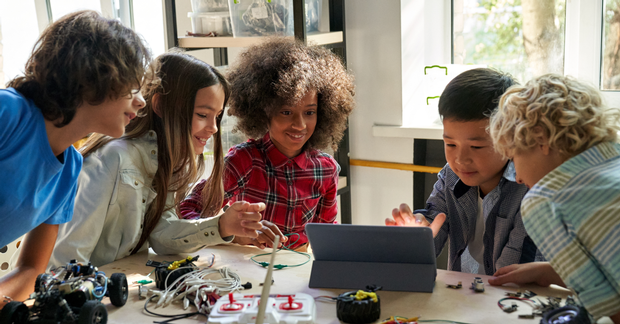Personality Type and Social Emotional Learning (SEL Series – Part 1)
Yvonne Nelson-Reid is a master practitioner for the Myers-Briggs Type Indicator® (MBTI®) instrument and a practitioner for the Murphy-Meisgeier Type Indicator for Children® (MMTIC®) assessment, who has been helping individuals, families, and children understand themselves better for over 25 years. In this series, Yvonne integrates her years of experience as an educator with her expertise in personality type to explore connections between type and social emotional learning. If you are new to type, check out What is Personality Type?
Imagine a world with well-rounded, caring, emotionally aware, and capable people living their best life with a healthy sense of their own identity and respect for others. Isn't this what we all want?
Social Emotional Learning (SEL) in K-12 is a social movement which has had sustained momentum for decades. Not only are individual schools, in the US education system, creating policies in support of SEL, but these policies are also now being implemented at the district, state, and federal levels.
What is SEL? According to the Collaborative of Academic, Social, and Emotional Learning (CASEL), an organization that supports student learning and development through SEL programming, SEL is the "process through which all young people and adults acquire and apply the knowledge, skills, and attitudes to develop healthy identities, manage emotions and achieve personal and collective goals, feel and show empathy for others, establish and maintain supportive relationships, and make responsible and caring decisions."1
The following broad and interrelated core competencies of SEL, as defined by CASEL, are:
- Self-Awareness
- Self-Management
- Responsible Decision-Making
- Relationship Skills
- Social Awareness
These five tenets are vital life skills for all people. Not only does the curriculum focus on students, but also school staff, caregivers, families, and community, recognizing that to support and empower one means doing the same for all. The social and emotional competencies, including the above-mentioned key settings represent the CASEL SEL framework, often referred to as the "CASEL wheel."
How might an understanding of personality type, through the Murphy-Meisgeier Type Indicator for Children (MMTIC), align with and strengthen the SEL movement? CASEL's five core competencies align directly with the goals for understanding type differences. Learning about type will also help people develop these same SEL life skills by discovering potential strengths (what comes naturally) and possible stretches (blind spots) unique to their personality type, while learning to value others who may be different. SEL teaches an awareness of what we need to know for healthy development and understanding personality type teaches how individuals go about doing so based on their natural styles. Knowing the how through type strengthens the SEL movement.
The What
The goal of SEL education is to teach the core competencies listed above. Advertising over 70 evidence-based SEL programs, CASEL strives to provide schools with many options to support their overall curriculum and student demographic. Each school can choose the program that fits best for them. Classroom teachers and school counselors follow guidelines for implementation and use content based on the chosen program. What is taught represents the core competencies; teaching, for example, what Responsible Decision-Making looks like, what healthy relationships are, and so forth. Many programs include exercises and learning objectives on how to achieve these but may not take the individual youth's personality style into consideration. Personality type can supplement learning by bringing to the awareness of each young person their own unique approach to life and therefore how they would naturally actualize the five competencies. Since there are no better or worse types, differences in approach can be affirmed rather than negated.
The How
Personality type can add this missing piece. We all have personality strengths (natural gifts) and personality stretches (challenges) that impact personal development. How we each approach Self-Management or decision-making will look different based upon our personality type. For instance, with deadlines, a preference for Perceiving typically reflects a pressure-prompted approach, whereas a Judging preference favors an early-starting approach. Self-Management will look quite different depending upon your personality type preferences. Responsible Decision-Making (referred to as balanced decision-making in type theory), requires the use of all mental processes (Sensing/Intuition, Thinking/Feeling). We tend to focus on our natural approach to decision-making (the two middle letters of our type code) neglecting their opposites. To illustrate: ENFJ innately takes in information through Intuition and comes to a conclusion through Feeling, overlooking the Sensing and Thinking processes needed for balanced decision-making. In the next article, I will unpack this further, along with the other competencies and their interrelationship to personality type.
The core competencies of SEL teach us what is essential to healthy human development and personality type preferences influence how we approach them. The more we understand ourselves, the better we can apply this understanding to our lives and interactions with others. Next month, I will explore in more depth the connection between the five core competencies of SEL and personality type and the benefit of using the MMTIC assessment to support Social Emotional Learning.
1."What Is Social and Emotional Learning?" What Is SEL? | CASEL District Resource Center, https://drc.casel.org/what-is-sel/.



_thumb.png)















